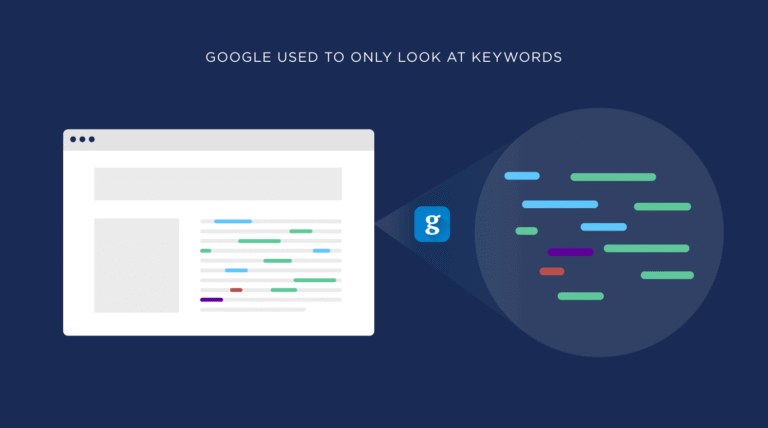In the ever-evolving world of SEO, standing out isn’t just about using the right keywords, it’s about using the smart ones. If you want your website to climb the search engine rankings, engage readers, and drive targeted traffic, then it’s time to go beyond the basics.
At SEO Khana, we believe in powerful, future-proof strategies and LSI keywords are one of the secret weapons that separate average content from top-performing pages. Still wondering what LSI keywords are and how to use LSI keywords effectively? You’re in the right place.
In this article, we’ll unlock the true potential of LSI keywords in SEO, show you how to find LSI keywords with ease, and explain how to apply them to boost relevance, visibility, and authority. Get ready to take your SEO game to the next level, with SEO Khana by your side.
What Are LSI Keywords?
To understand how modern search engines interpret content, it’s essential to explore the concept of Latent Semantic Indexing, a method that helps algorithms identify relationships between words and concepts within a webpage. Through this approach, search engines don’t just look at exact match keywords; they analyze the overall context and related terms to determine relevance.
So, when we define LSI keywords, we’re referring to words and phrases that are closely related in meaning to a central topic. These terms help enrich content by giving it semantic depth and allowing search engines to better grasp the intent behind it.
If you’re asking what LSI keyword in SEO, the answer lies in how these related terms contribute to more accurate indexing and ranking. By naturally incorporating semantically linked words into your content, you’re not only enhancing readability for users but also signaling to search engines that your page offers comprehensive, relevant information on a specific subject.
LSI Keywords Definition in SEO
Before diving into the specifics, it’s important to clarify what these related terms really are and why they matter in SEO. Understanding the precise meaning behind this concept will help you use it more effectively to boost your content’s relevance and search engine performance. Here’s a clear breakdown of the core ideas:
- These are semantically related words and phrases that help search engines better grasp the overall context of your content.
- They represent terms that naturally appear alongside your main topic, adding clarity and supporting relevance.
- The concept goes beyond exact keyword matches or simple synonyms, focusing on broader, meaningful associations.
- Including these related terms signals to search engines the true subject and intent of your page, which enhances content quality.
- For example, for an article about “fitness,” related phrases like “workout routines,” “healthy diet,” and “muscle building” help define the topic comprehensively.
Why Are LSI Keywords Important for SEO?
Understanding why related semantic terms matter in SEO is crucial for crafting content that ranks well and satisfies user intent. Here’s a detailed look at their importance:
Enhancing Search Engines’ Understanding of Content Context
Modern search engines no longer rely solely on exact keyword matches in your keyword mapping. Instead, they use sophisticated algorithms to interpret the overall meaning of a page. By including contextually relevant terms, you help these algorithms recognize what your content is truly about. This deeper understanding increases the chances that your page will be shown for a wider variety of relevant search queries.
Avoiding Keyword Stuffing and Improving Readability
Overusing the same keyword can harm your SEO efforts and make your text awkward to read. By naturally incorporating a range of related terms, your content flows better and reads more naturally. This not only keeps visitors engaged but also aligns with search engines’ preference for high-quality, user-friendly content.
Broadening Topic Coverage and Authority
Using semantically related phrases allows you to cover different aspects of a topic comprehensively. This signals to search engines that your content is authoritative and informative, increasing trustworthiness. For example, an article on “digital marketing” that also discusses “SEO strategies,” “content marketing,” and “social media campaigns” appears more valuable than one narrowly focused on just one phrase.
Matching Diverse Search Queries
People search differently. Some might type exact phrases, while others use related or conversational terms. By integrating a variety of semantically linked words, your content can rank for multiple variations of search queries, attracting a broader audience.
Improving User Experience and Engagement
High-quality content that addresses related ideas provides readers with comprehensive information, reducing bounce rates and encouraging longer visits. Engaged visitors are more likely to convert, share your content, or return to your site.
Helping with Semantic Search and Voice Search
As voice assistants and semantic search become more prevalent, search engines focus on understanding user intent rather than just keywords. Using related terms helps your content align better with these evolving technologies, improving your chances of appearing in voice search results and featured snippets.
By embracing these related semantic terms in your content strategy, you create a richer, more valuable experience for both users and search engines, ultimately boosting your SEO performance and driving more meaningful traffic.
How to Find LSI Keywords
Discovering the right contextually relevant terms to support your main keyword is a critical step in strengthening your SEO strategy. Here’s a step-by-step guide on how to find them effectively:
1. Use Google’s Autocomplete and Related Searches
Start by typing your main keyword into Google’s search bar. You’ll notice suggested completions, these are based on common user searches and often include valuable semantically related terms.
After hitting search, scroll to the bottom of the page and check the “related searches” section, another goldmine for inspiration.
2. Leverage LSI Keyword Generator Tools
There are several free and paid tools designed to help you generate relevant keyword ideas based on your main topic. A few popular options include:
- LSIGraph – Offers a list of semantically linked phrases along with volume and trend data
- Ubersuggest – Ubersuggest Shows keyword variations, related topics, and content ideas.
- SEMrush or Ahrefs – Paid tools that reveal keyword clusters and semantic suggestions based on top-ranking pages.
Using a dedicated LSI keyword generator can help you quickly build a list of powerful supporting terms.
3. Analyze Competitor Content
Look at the top-ranking pages for your target keyword. Read their content and identify recurring terms or subtopics they cover. These are often related concepts that help define the topic and give it depth.
Tools like Surfer SEO and Frase also analyze these pages and suggest semantic keywords based on competitors’ content.
4. Use Keyword Research Platforms with Semantic Insights
Platforms like AnswerThePublic or AlsoAsked show how users phrase questions and related search intents around a keyword. This not only provides keyword ideas but also helps you understand the intent behind those searches, ideal for aligning your content with real audience needs.
5. Explore Topic Clusters and Entity Relationships
Google values content that demonstrates topic authority. Try grouping related terms around a central theme. For instance, if your main topic is “organic skincare,” your clusters might include “natural ingredients,” “paraben-free,” “skin hydration,” and “eco-friendly packaging.” These naturally serve as semantic enhancements to the core subject.
6. Use AI Writing Assistants or SEO Plugins
Modern writing tools like Surfer AI, RankMath, or Yoast SEO can offer LSI term suggestions as you create content. They analyze your writing in real-time and recommend semantically related words based on your niche and focus keyword.
By applying these methods, you’ll be able to uncover a strong set of supporting phrases that not only improve SEO but also make your content more informative, relevant, and user-focused. Collaborating with a professional content writing agency ensures that these elements are used strategically, resulting in content that ranks better and engages more effectively.
How to Use LSI Keywords in Content:
Once you’ve gathered a solid list of semantically related terms, the next step is knowing how to integrate them effectively into your content. Using them wisely can boost your SEO performance, improve readability, and enhance the overall quality of your pages. Here’s how to do it:
1. Use Them Naturally Within the Text
Don’t force them into your content. Instead, use these related phrases where they make sense contextually. The goal is to enrich your writing, not overload it. When used naturally, they help build meaning and flow without disrupting the reader’s experience.
2. Incorporate Them in Headings and Subheadings
Placing relevant terms in your H2 or H3 headings signals to search engines that your content covers key subtopics. This helps improve content structure and relevance while also making your post easier to scan for users.
3. Add Them to Image Alt Text and Captions
If you’re using images, include supporting phrases in the alt text and captions (as long as it’s relevant). This not only improves accessibility but also strengthens SEO through visual content optimization.
4. Include Them in the Meta Title and Meta Description
Optimizing your meta tags with a mix of your main keyword and LSI terms can improve your page’s visibility in search results and increase click-through rates by showing a broader topic relevance.
5. Place Them Near Your Main Keywords
Using semantically linked terms close to your primary keyword helps search engines understand the deeper context of the paragraph or section. It reinforces topical relevance without sounding repetitive.
6. Use Them to Expand on Ideas
Let supporting terms guide your content depth. Each related phrase can inspire a paragraph or section, allowing you to explore the topic more comprehensively and provide additional value to the reader.
7. Avoid Overuse
While these terms are powerful, using too many can dilute your message or come off as unnatural. Focus on quality over quantity, only use words that truly add value and clarity to the content.
Final Tip:
Always write for people first, and search engines second. These terms should enhance your content, not dominate it. When used strategically, they help you achieve better rankings and build trust with your audience.
LSI Keywords SEO Strategy
Building an effective SEO strategy today requires more than targeting a single keyword, it demands a full understanding of context, user intent, and content depth. Integrating semantically related terms into your SEO plan is a smart, sustainable way to achieve long-term results. Here’s how to build a winning strategy around these terms:
1. Start with Intent-Focused Keyword Research
Before choosing any supporting terms, understand your audience’s search intent. Are they looking for information, solutions, comparisons, or products? Your LSI strategy should reflect that by including words that align with the different stages of the user journey.
2. Build Content Clusters Using Related Concepts
Instead of writing one standalone article per keyword, organize your content into clusters. Each piece targets a specific topic while including relevant supporting terms that tie into a broader theme. This improves internal linking, boosts topical authority, and helps Google understand the relationship between your pages.
3. Optimize Content with Semantic Variety
When creating content, avoid overusing your primary keyword. Instead, include a healthy mix of semantically related phrases throughout your article, headings, and subheadings. This tells search engines that your content covers the topic comprehensively.
4. Use On-Page Tools to Refine Your Content
Leverage tools like Surfer SEO, Clearscope, or Frase to analyze top-ranking content and extract relevant semantic terms. These platforms can suggest what to include based on real-time data, helping you stay competitive in your niche.
5. Integrate Terms Across All SEO Elements
Your supporting terms shouldn’t be limited to body text. Include them in:
- Meta titles and descriptions
- Image alt texts
- Anchor text for internal links
- URLs (where appropriate)
This reinforces relevance across your entire page structure.
6. Update and Expand Existing Content
Revisit older content and refresh it by adding semantically rich phrases, new sections, or FAQs. This boosts SEO value without creating entirely new pages and helps maintain high rankings over time.
7. Monitor Performance and Adjust
Track how pages perform after optimizing with LSI terms. Use tools like Google Search Console and SEMrush to evaluate traffic, rankings, and impressions for a wider set of search queries. Adjust your content based on what’s working, and what’s not.
By embedding this approach into your overall SEO strategy, you’re not just targeting keywords, you’re building context, depth, and authority. This is what modern search engines reward, and what users truly appreciate.
Common Misconceptions About LSI Keywords
Despite their popularity in SEO discussions, there are several myths and misunderstandings surrounding the concept of LSI keywords. Clarifying these misconceptions is essential to using them effectively and avoiding outdated strategies. Here are the most common ones:
- Google doesn’t actually use Latent Semantic Indexing. The term is outdated, and Google relies on more advanced algorithms for understanding context.
- They are not just synonyms. These terms include conceptually related words that add depth, not just similar meanings.
- There’s no fixed number to use. Quality matters more than quantity, use them naturally where relevant.
- They don’t guarantee top rankings. They support your SEO, but need to be part of a full strategy.
- Tools alone aren’t enough. Human understanding of content and intent is still essential for proper use.
How SEO Khana Boosts Your Rankings Using Smart LSI Keyword Strategies
At SEO Khana, we go beyond traditional tactics to help your website rise above the noise. As the best SEO company for businesses aiming for long-term growth, we implement advanced strategies, including the smart use of semantically related keywords, to improve content relevance and boost search visibility.
Our expert team offers a wide range of SEO services tailored to your business goals. Whether you’re a small business seeking a local SEO keywords, or a growing brand needing a full technical SEO audit service, we ensure your content aligns with what both users and search engines are truly looking for.
By focusing on page SEO optimization, we incorporate meaningful and related terms that help your pages rank for broader, more relevant queries. This not only improves performance but also enhances user experience and content quality, two things search engines love.
Whether you’re in E-commerce seo service, content marketing, or a service-based industry, our use of context-driven strategies positions your brand to succeed in a competitive digital world. At SEO Khana, we don’t just optimize, we connect your message to real search intent, one relevant keyword at a time.
Conclusion:
In today’s competitive digital landscape, creating content that truly resonates with both search engines and users requires more than just focusing on a single keyword. By understanding and applying the power of semantically related terms, you can enrich your content, improve context, and increase your visibility across a broader range of search queries.
At SEO Khana, we believe that smart, context-driven optimization is the key to long-term SEO success. Now that you know what these keywords are, how to find them, and how to use them strategically, it’s time to elevate your content and stand out in search results.
Let your content speak with depth, clarity, and relevance, because great SEO is never about chasing rankings, it’s about delivering value.







